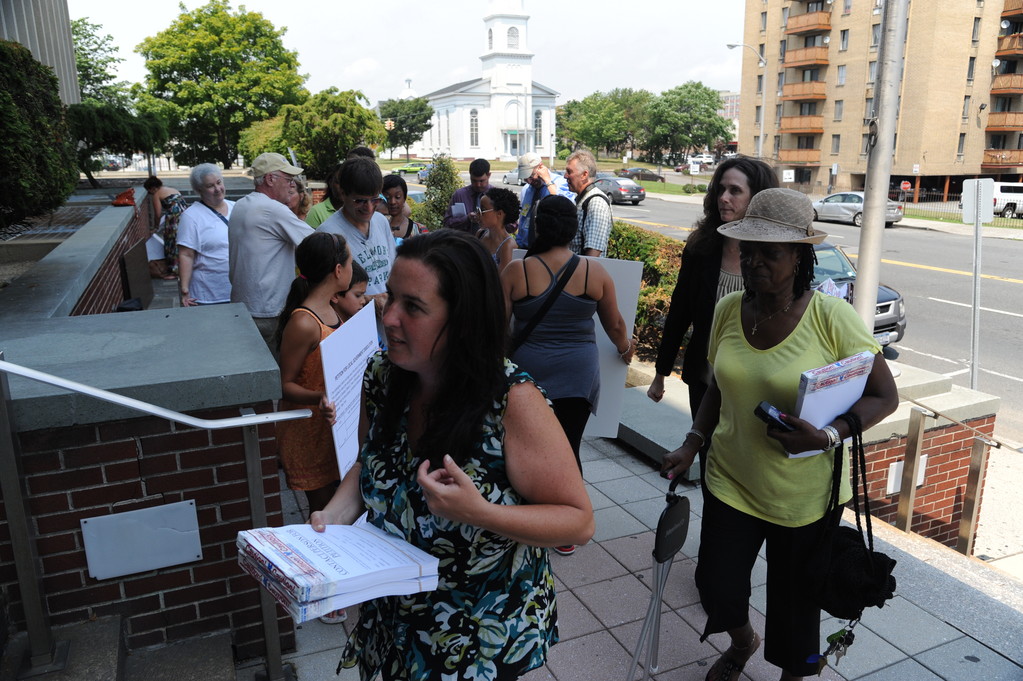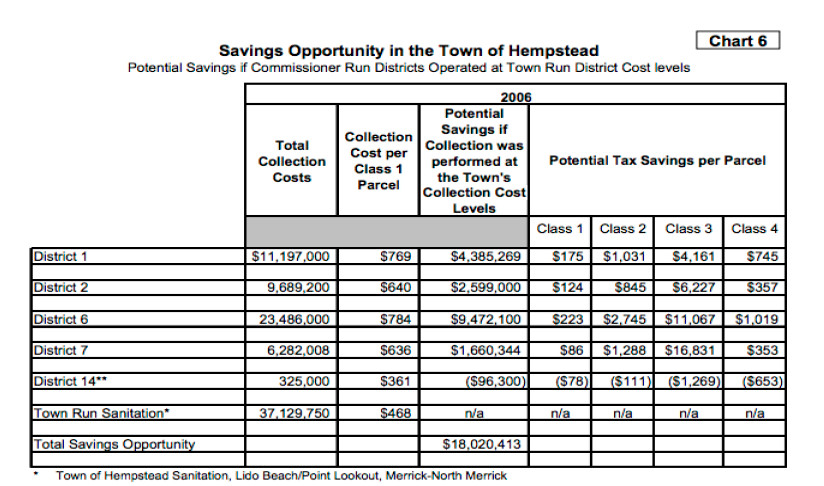What’s behind the drive to dissolve Sani2?
After months spent canvassing, a group called Residents for Efficient Special Districts, or RESD, finally delivered the 5,000 signatures it needed to force a referendum on the dissolution of Sanitary District 2. The submission of the petitions at the Nassau County clerk’s office on July 23 caused quite a splash, with a procession of activists bearing stacks of signed documents into the building after making impassioned speeches outside.
But what’s the argument for disbanding Sani2? Who are the groups backing the drive, and what does the district have to say in its defense?
Who are the Residents for Efficient
Special Districts?
According to materials supplied by the Long Island Progressive Coalition, a community-based organization that supports RESD, it is “a non-partisan civic organization devoted to advocating for the most efficient and effective provision of Fire, Sanitation, and Water services made up of concerned residents across Long Island.”
The group’s main concerns about Sani2 are — no surprise — financial. A statement on the group’s website, which was also distributed during the signature drive, says that, due to “its small size, and its lack of oversight, Sanitary District 2 is charging nearly twice as much for garbage service as adjacent districts.” The group estimates that the approximately $500 per-home cost of garbage collection could be halved if the Town of Hempstead took over collections (see chart).
In addition to complaints about costs, the RESD also charges that Sani2 has spent unwisely, lacks a written policy for maintaining ethical standards, overspends on salaries and benefits and lacks adequate financial operational structure. (Details of these complaints can be found at resd.info.) “The only people benefiting from Sanitary District 2 are the handful of bureaucrats that run it,” said Lisa Tyson, director of the Long Island Progressive Coalition. “After dissolution, taxpayers stand to save hundreds of dollars a year, and workers stand to gain the higher quality of management that comes with increased public oversight.”
What does RESD want?











